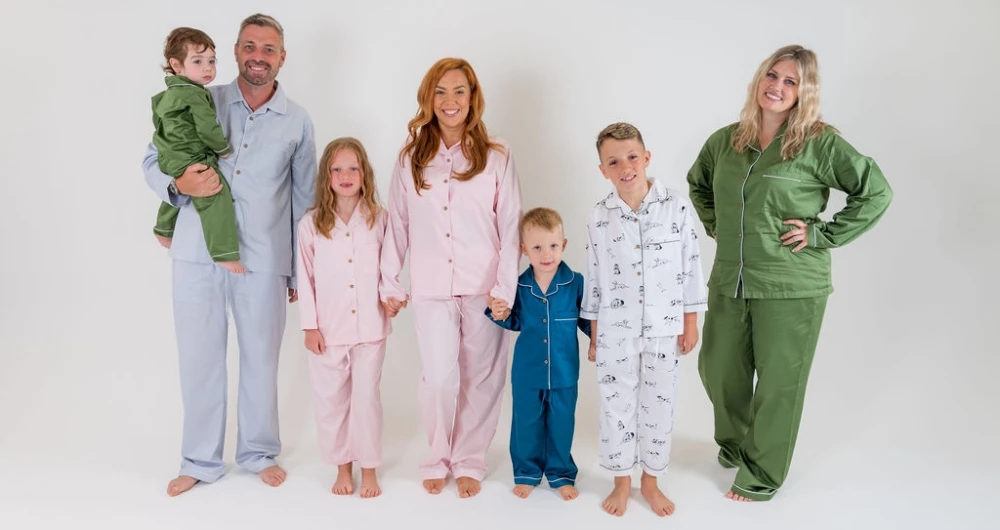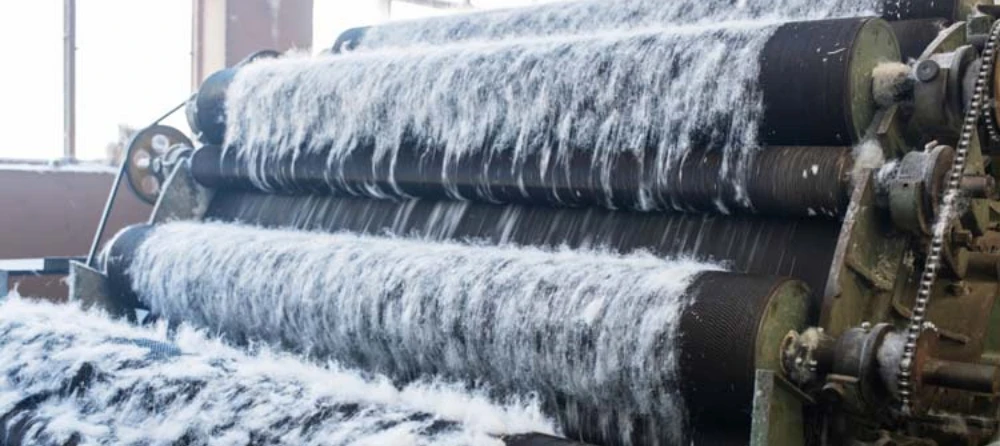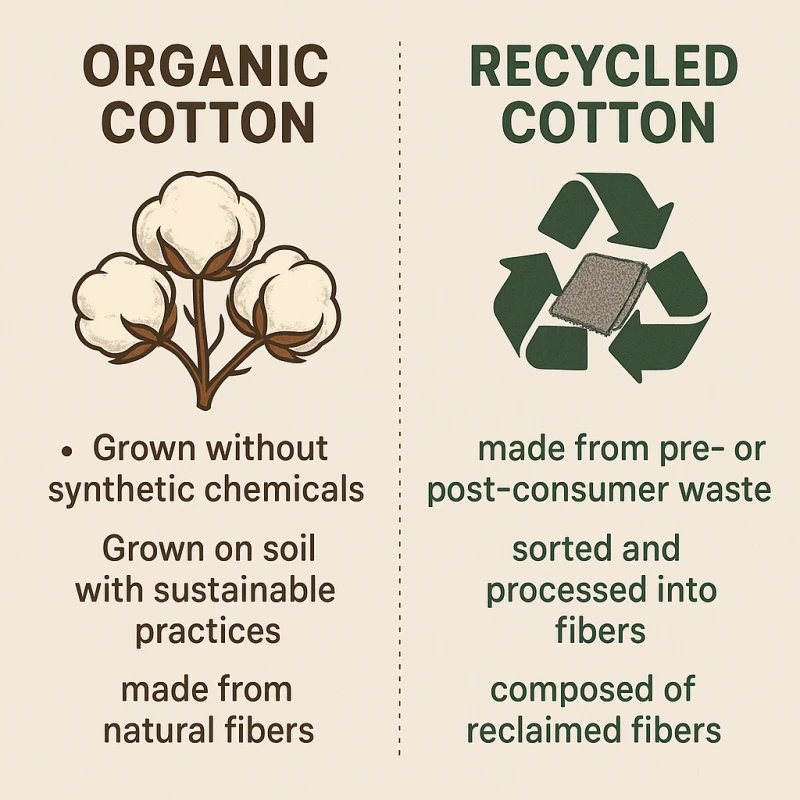If you’re wondering whether organic cotton or recycled cotton fits your conscious brand best, you’re not alone. Many fashion houses now embrace recycled cotton to cut waste and save resources. Sustainable brands keep organic cotton in their collections, showing a clear shift toward eco-friendly materials.
When you choose between organic cotton and recycled cotton, you make a statement about your brand’s values. Friendtex stands behind quality, innovation, and sustainability, helping you create premium products with a lower impact on the planet.
Key Takeaways
Organic cotton is grown without harmful chemicals, making it hypoallergenic and safe for sensitive skin. Choose it for premium, eco-friendly products.
Recycled cotton reduces landfill waste and conserves resources. It uses significantly less water and energy compared to organic cotton, making it a sustainable choice.
Both organic and recycled cotton support sustainability, but in different ways. Organic cotton promotes healthy farming, while recycled cotton supports a circular economy.
Certifications like GOTS and Global Recycled Standard ensure the integrity and sustainability of your cotton products. Always check for these labels.
Consider your brand’s values and customer expectations when choosing between organic and recycled cotton. Each option offers unique benefits for eco-conscious brands.
Definitions
Organic Cotton

You might see organic cotton everywhere in sustainable fashion. It’s cotton grown without harmful chemicals, pesticides, or synthetic fertilizers. The Global Organic Textile Standard (GOTS) says organic cotton must meet strict rules from the farm to the finished product.
This means you get a fabric that’s gentle on your skin and better for the planet. Friendtex uses organic cotton in products like pajamas and underwear. These items feel soft, breathable, and safe for sensitive skin.
You can choose organic cotton pajamas for your brand if you want comfort and an eco-friendly style. Friendtex’s organic cotton underwear for women also gives you a natural fit with less impact on the environment.
Tip: Organic cotton is hypoallergenic and perfect for customers who care about health and sustainability.
Recycled Cotton
Recycled cotton comes from old garments, leftover fabric, or textile waste. Manufacturers collect, clean, and process these materials to create new cotton fibers. You help reduce landfill waste and save resources when you choose recycled cotton.
Friendtex offers cotton sleep shirts and kids’ cotton pajamas made with recycled cotton options. These products keep the same comfort and durability you expect, but with a smaller environmental footprint.
Certification Name | Purpose | Required Certification Level |
|---|---|---|
GOTS (Global Organic Textile Standard) | Sets strict ecological and labor criteria for textiles, emphasizing organic materials and non-toxic processes. | Applies to every stage of textile production for products containing at least 70% certified organic fibers. |
OCS (Organic Content Standard) | Ensures traceability of materials from certified organic farms. | Certifies all stages of the supply chain for products containing organically grown content. |
USDA Organic | Certifies that products are produced in compliance with organic standards. | The product can only be labeled USDA Organic if it meets specific organic content regulations. |
Global Recycled Standard (GRS) | Verifies recycled content in products and promotes sustainable choices. | Ensures traceability of recycled content from feedstock to final product, meeting strict social and environmental standards. |
Recycled Claim Standard | Certifies the presence and traceability of recycled content in materials. | Involves third-party certification to ensure compliance and transparency in recycled content claims. |
Friendtex holds certifications like GOTS, OCS, and Global Recycled Standard. These show you that every organic cotton or recycled cotton product meets high standards for safety and sustainability.
GOTS focuses on ecological and labor criteria for textiles, requiring at least 70% organic fibers.
OCS ensures traceability of organic materials, certifying all supply chain stages for organic content.
USDA Organic certifies compliance with organic standards.
Global Recycled Standard verifies recycled content and promotes sustainable practices.
Recycled Claim Standard certifies the presence of recycled materials and ensures transparency.
Production & Sustainability
Organic Cotton Process
When you choose organic cotton, you support a process that values both people and the planet. Here’s how it works:
Farmers grow organic cotton without synthetic chemicals or pesticides. This keeps the soil healthy and protects local wildlife.
After harvesting, the cotton goes through ginning, which separates the fibers from the seeds.
The fibers get spun into yarn.
Next, the yarn is dyed using eco-friendly methods.
Skilled workers construct the garment, like Friendtex’s organic cotton pajamas or underwear.
Finally, the finished product gets distributed to brands like yours.
This process supports sustainable farming and creates soft, hypoallergenic fabrics. Friendtex follows strict standards, making sure every step meets global certifications.
Recycled Cotton Process

Recycled cotton takes a different path. Instead of starting with new plants, you use existing cotton fibers from old clothes or leftover fabric. Here’s what happens:
Workers collect, sort, and clean discarded textiles.
The recycling process turns these materials into new cotton fibers.
These fibers become new products, such as Friendtex’s cotton sleep shirts or kids’ cotton pajamas.
Recycling cotton uses much less water and energy. You help keep textiles out of landfills and reduce the need for new resources. This process fits perfectly with brands that want to lower their environmental impact.
Sustainable Impact
Let’s look at the numbers. Producing one kilogram of organic cotton uses about 1,000 to 2,500 liters of water, depending on the farm and climate. Recycled cotton only needs 30 to 100 liters per kilogram. That’s a huge difference! Here’s a quick comparison:
Type of cotton | Average water consumption | Details |
|---|---|---|
Organic cotton | 1,000–2,500 L | Depends on farming practices and climate |
Recycled cotton | 30–100 L | Made from used textiles or scraps, very low environmental impact |
You also cut carbon emissions with recycled cotton. Organic cotton produces about 978 kg of CO2 per 1,000 kg of fiber, which is already half of conventional cotton. Recycled cotton drops emissions even further—down to about one-fifth of organic cotton’s level.
By choosing either organic cotton or recycled cotton, you support sustainability. You help protect the environment, save water, and reduce waste. Friendtex’s commitment to sustainable practices means your brand can offer high-quality products with a lower footprint.
Organic Cotton vs Recycled Cotton
Environmental Benefits
When you compare organic cotton vs recycled cotton, you see two strong options for eco-friendly brands. Both materials help you lower your environmental impact, but they do it in different ways.
Organic cotton supports healthy farming. Farmers grow it without synthetic pesticides or fertilizers. This protects the soil, keeps water clean, and helps local wildlife thrive.
Studies show that organic cotton reduces pesticide use, prevents water contamination, and supports biodiversity. It also helps fight climate change by lowering greenhouse gas emissions.
Recycled cotton takes a different approach. You give new life to old textiles and leftover fabric. By recycling, you keep waste out of landfills and save valuable resources.
For example, using 1,000 kg of recycled cotton yarn can save 0.5 hectares of land, 6,600 kg of CO2 emissions, and 2,783 cubic meters of irrigation water. Recycling also supports a circular economy, where materials get reused instead of thrown away.
Here’s a quick look at the key environmental benefits:
Type of Cotton | Key Environmental Benefits |
|---|---|
Recycled Cotton | Reduces landfill waste, conserves water and energy, lowers carbon footprint, supports recycling and the circular economy. |
Organic Cotton | Grown without synthetic pesticides, promotes soil health and biodiversity, uses less water, and helps ecosystems. |
If your brand wants to highlight sustainability, both organic cotton and recycled cotton make a strong statement. You can choose the path that fits your values—whether it’s supporting clean farming or leading the way in recycling.
🌱 Tip: Friendtex offers both organic cotton pajamas and cotton sleep shirts with recycled cotton options, so you can match your brand’s eco goals.
Product Quality
You want your products to feel great and last long. When you look at organic cotton vs recycled cotton, you’ll find both deliver on comfort and durability, but with unique qualities.
Organic cotton feels soft, breathable, and gentle on the skin. Friendtex organic cotton pajamas and underwear for women show how this material creates a luxurious, hypoallergenic experience.
These products work well for sensitive skin and offer long-lasting comfort. You can customize styles, colors, and patterns to match your brand’s vision.
Recycled cotton also brings high quality to the table. Advances in recycling technology mean you get fibers that are flexible, ultra-soft, and durable. Friendtex kids cotton pajamas and cotton sleep shirts made with recycled cotton keep their shape and softness, even after many washes.
You can rely on recycled cotton for products that meet high consumer expectations at accessible prices.
Organic cotton: Soft, breathable, hypoallergenic, customizable, and ideal for premium sleepwear.
Recycled cotton: Flexible, ultra-soft, long-lasting, and perfect for brands focused on recycling and resource-saving.
No matter which you choose, Friendtex ensures your products meet strict quality standards. You get the freedom to design unique, sustainable garments that your customers will love.
Supply & Reliability
Supply and reliability matter when you scale your brand. The organic cotton vs recycled cotton debate often comes down to how easily you can source these materials and keep up with demand.
Organic cotton has a growing market, now valued at about $3 billion USD each year. Demand keeps rising as more brands focus on sustainability. However, organic cotton makes up only about 1% of the total cotton market. Prices can fluctuate due to weather, policy changes, and shifts in the fashion industry.
You might see prices rise during droughts or drop when supply improves. Friendtex works with certified suppliers to ensure a steady flow of organic cotton for your projects.
Recycled cotton benefits from the global supply of textile waste. Recycling gives you access to a large pool of raw materials, which helps meet high demand at stable prices. Still, both organic cotton and recycled cotton face challenges in traceability and standardization.
Complex supply chains can make it hard to track the true origin of cotton. Friendtex addresses these issues by holding certifications like GOTS and the Global Recycled Standard, so you can trust the integrity of your products.
Organic cotton: Rapidly growing market, but limited supply and price swings.
Recycled cotton: Large supply base from textile waste, stable pricing, and strong recycling infrastructure.
You can count on Friendtex for reliable sourcing, quality control, and customization—whether you choose organic cotton, recycled cotton, or a blend. Your brand gets the support it needs to grow sustainably and meet customer expectations.
Limitations
Organic Cotton
You might love the idea of organic cotton, but it does come with a few challenges. Here’s what you should know:
Organic cotton usually has a lower yield per hectare than regular cotton. Farmers need more land to get the same amount of fiber.
Production costs can be higher. Growing organic cotton takes more water and labor because farmers avoid chemical shortcuts.
The certification process is strict. Some producers, especially in developing areas, find it tough to meet all the requirements.
There’s not always enough organic cotton seed available. This makes it harder for farmers to scale up quickly.
Many brands find creative ways to work around these issues. Take a look at how some well-known companies approach organic cotton:
Brand | Approach | Certification |
|---|---|---|
Patagonia | Builds strong brand equity around organic cotton | GOTS |
Eileen Fisher | Leads in sustainability by focusing on organic cotton | GOTS |
Kotn | Works directly with organic cotton cooperatives for better traceability | GOTS |
Pact | Offers organic basics at everyday prices | GOTS |
Note: Choosing organic cotton shows your commitment to sustainability, but you’ll want to plan for these hurdles as you grow your brand.
Recycled Cotton
Recycled cotton is a smart choice for eco-conscious brands, but it has its own set of limitations:
The recycling process weakens cotton fibers. You often need to blend recycled cotton with new fibers to get the strength and durability you want.
Many old textiles are blends, not pure cotton. Separating cotton from other fibers like polyester or elastane can be tricky.
Mechanical recycling shortens the fibers. Shorter fibers mean the fabric might not be as strong, soft, or long-lasting as regular cotton.
To improve quality, manufacturers often mix recycled cotton with virgin cotton or other fibers.
You can still create high-quality, sustainable products with recycled cotton, but you’ll need to pay attention to fiber blends and fabric performance.
Choosing Sustainable Cotton for Your Brand

Aligning with Brand Values
You want your brand to stand out in the world of sustainable fashion. Start by asking what matters most to you and your customers. If you focus on clean farming and eco-friendly choices, organic cotton might be your best fit. If your brand wants to lead in recycling and waste reduction, recycled cotton could be the answer.
Many environmentally conscious brands choose recycled cotton because it uses less water and energy. You also help divert textile waste from landfills, which supports a circular economy. Friendtex makes it easy to match your values with the right material.
You can customize products and choose certified fabrics that show your commitment to sustainability.
Certifications throughout the supply chain tell your customers they can trust the product they’re purchasing.
Product Needs
Think about what your customers expect from your products. Do they want ultra-soft pajamas, durable sleep shirts, or hypoallergenic underwear? Organic cotton works well for sensitive skin and premium sleepwear.
Recycled cotton offers high-quality, long-lasting comfort and a soft feel. You can use the table below to compare certifications that matter for sustainable fashion:
Certification | Description |
|---|---|
Global Organic Textile Standard | Recognized for organic fibers with ecological and social criteria. |
Better Cotton | Training for sustainable farming practices. |
bluesign | Safer workplaces and less harmful textile products. |
OEKO-TEX | Evaluates materials and production for environmental impact. |
Cradle to Cradle | Assesses the safety, circularity, and responsibility of materials. |
Friendtex offers a wide range of options, so you can tailor products to your brand’s needs. You get access to custom sizing, colors, and styles for both organic and recycled cotton garments.
Sourcing Tips
Choosing the right supplier makes a big difference. Look for partners who hold certifications and offer traceable materials. Friendtex provides a one-stop solution for sustainable fashion brands.
You get help with design, proofing, and quality control. Certifications like GOTS and Global Recycled Standard give you peace of mind. Here are some tips to guide your sourcing:
Check for certifications that match your sustainability goals.
Ask about traceability and transparency in the supply chain.
Choose suppliers who offer customization and reliable delivery.
Make sure your products meet the needs of environmentally conscious customers.
You can build a strong brand by choosing recycled cotton or organic cotton. Both options help you create sustainable, high-quality products that support your values and your customers’ expectations.
Conclusion
Choosing between organic cotton and recycled cotton shapes your brand’s story. Organic cotton supports healthy ecosystems and gentle fabrics. Recycled cotton cuts waste and saves resources. Leading brands like Zara, H&M, and Patagonia use both to boost sustainability:
Brand | Sustainable Practices |
|---|---|
Zara | Focuses on organic cotton and recycled fibers to lower waste and emissions. |
H&M | Blends organic cotton and recycled materials in eco collections. |
Patagonia | Promotes organic cotton and circular fashion through repair and reuse. |
You can trust Friendtex to help you create eco-friendly, high-quality garments that match your values and win customer trust.
FAQ
What’s the main difference between organic cotton and recycled cotton?
Organic cotton comes from plants grown without chemicals. Recycled cotton uses old clothes or fabric scraps to make new fibers. You help the planet with both, but each has a unique story.
Can you mix organic cotton and recycled cotton in one product?
Yes, you can blend them. Many brands do this to balance softness, durability, and sustainability. You get a product that feels great and saves resources.
How do you know if your cotton is certified organic or recycled?
Look for labels like GOTS, OCS, or Global Recycled Standard. These certifications show you that the cotton meets strict standards for safety and sustainability.
Tip: Always check the product tag or ask your supplier for certification details.
Is recycled cotton as comfortable as organic cotton?
Recycled cotton feels soft and breathable. Advances in technology make recycled fibers almost as comfy as organic cotton. You can trust Friendtex to deliver high-quality, cozy garments.


